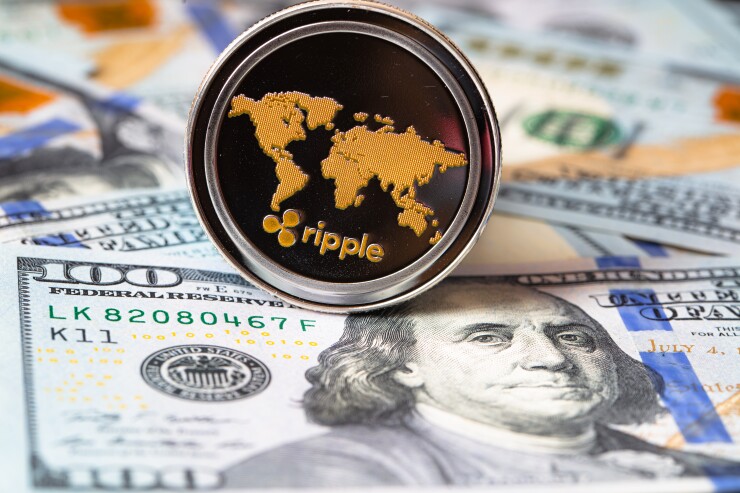
A federal judge
U.S. District Judge Analisa Torres in New York on Thursday said that the crypto firm's sales of the XRP token to sophisticated investors met the test for an investment contract under federal securities law because those buyers "would have understood that Ripple was pitching a speculative value proposition for XRP with potential profits."
But the judge said that didn't apply to programmatic investors, meaning the broader public buying crypto on secondary markets. She said there was no evidence that such investors could parse the many statements made by Ripple about XRP. The judge said many statements cited by the Securities and Exchange Commission may not have been shared with the broader public.
XRP soared on the ruling, and was up around 27% in early afternoon trading on Thursday, with many industry figures and experts highlighting the judge's ruling on secondary-market crypto sales as win. Whether cryptocurrencies are securities has long been a major question hanging over the industry, which has argued it's not subject to the jurisdiction of the SEC and other regulators.
"My overall impression is this is a positive decision for the digital asset industry," said David Tramel Stabile, a Miami-based partner at Winston & Strawn specializing in crypto.
"The critical component of the decision is the conclusion that secondary market purchases of XRP do not constitute purchases of securities, as buyers could not have known if their payments of money went to Ripple or someone else," he said.
The SEC didn't immediately respond to a request for comment, but the ruling comes as the regulator has aggressively targeted crypto firms for allegedly selling unregistered securities. Earlier on Thursday, the SEC sued Celsius Network and its former chief executive officer, Alex Mashinsky, who was also charged with fraud by federal prosecutors in New York.
David Brill, former deputy general counsel of bankrupt crypto broker Voyager Digital, said Torres's ruling may be a "watershed moment for the classification of digital assets." He said it boded particularly well for Coinbase Global, which was sued by the SEC last month.
"It undermines the SEC's position that tokens sold on Coinbase's platform were sales of unregistered securities," Brill said.
The SEC sued San Francisco-based Ripple and top executives in December 2020. It accused the company, co-founder Christian Larsen and Chief Executive Officer Bradley Garlinghouse of misleading investors in XRP by selling more than $1 billion worth of the tokens without registering them, depriving investors of information about the cryptocurrency and Ripple's business.
Garlinghouse claimed victory in a tweet on Thursday.
"Thankful to everyone who helped us get to today's decision — one that is for all crypto innovation in the U.S. More to come," he wrote.
The SEC's case against Ripple will still proceed on the institutional-sales claims, though any trial may be delayed by appeals of Torres's ruling.
The case is SEC v. Ripple Labs Inc., 20-cv-10832, US District Court, Southern District of New York.






